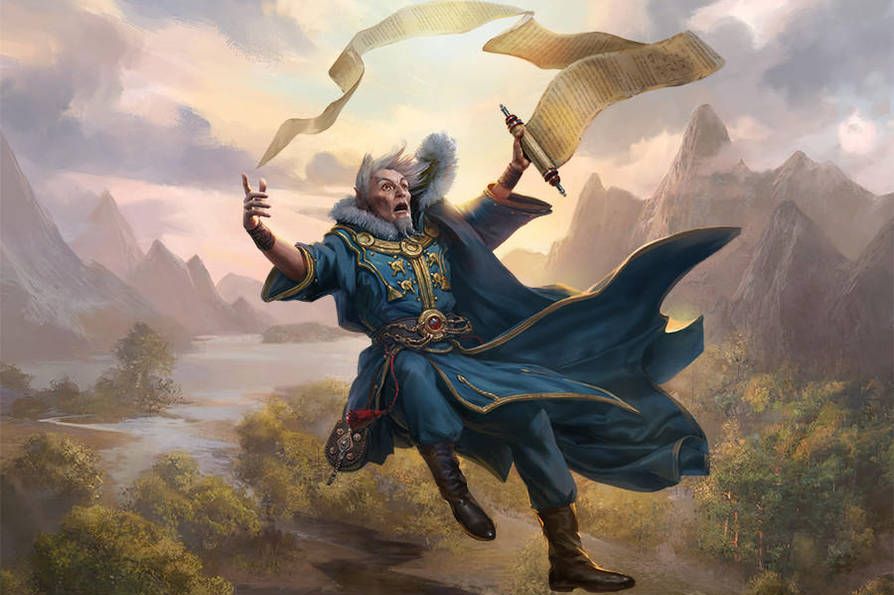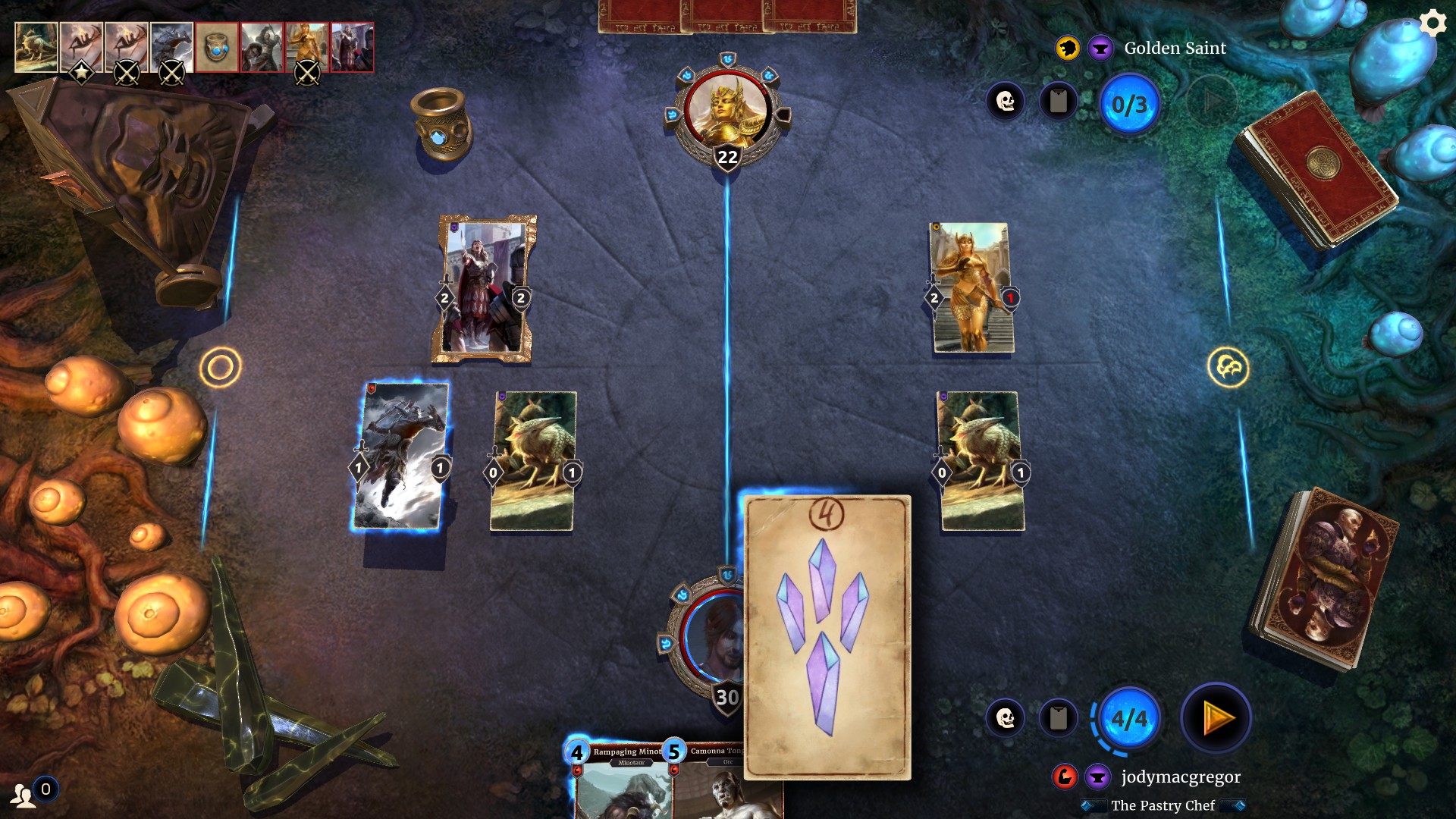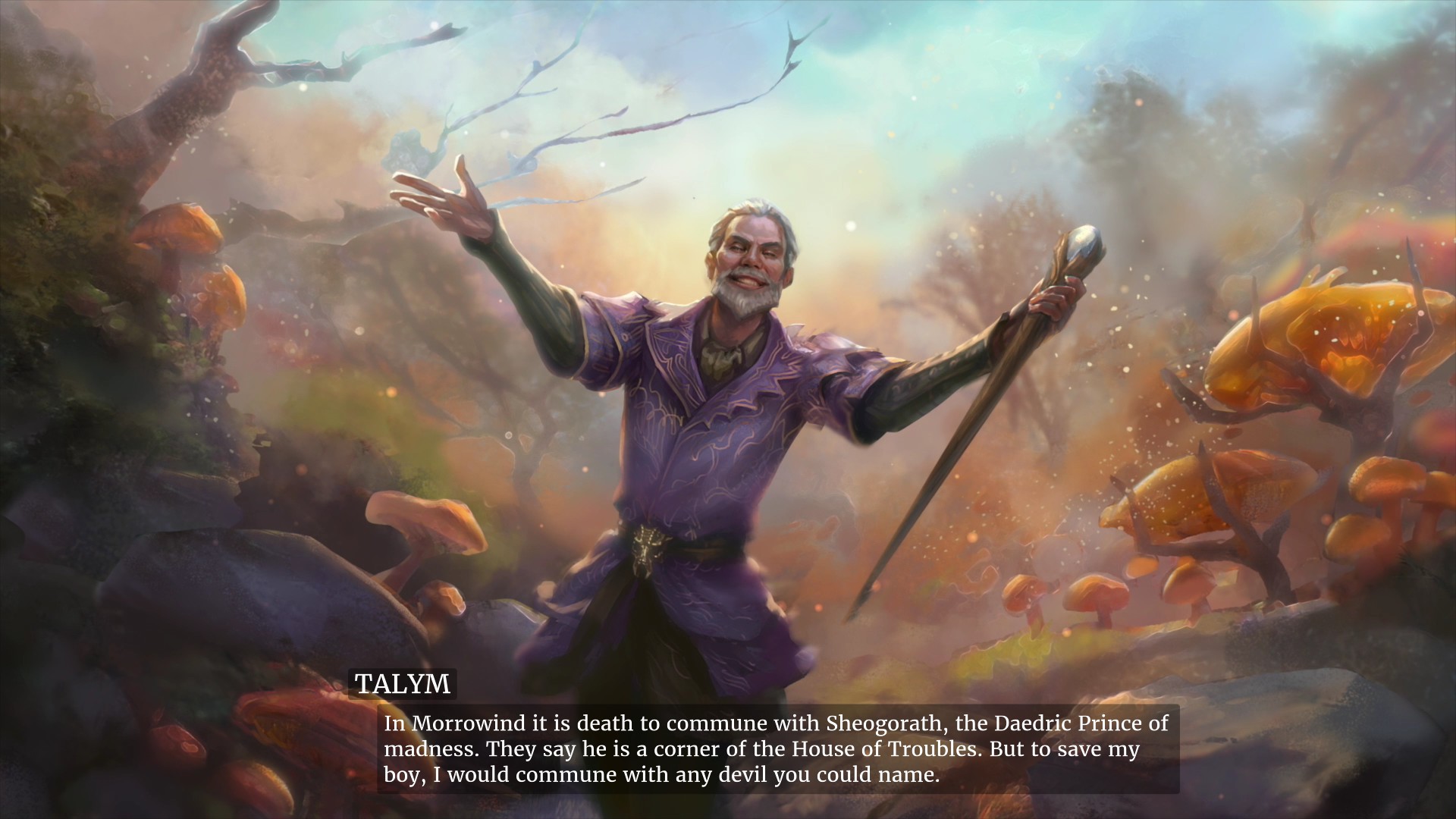The Elder Scrolls: Legends has recovered from disaster
Turning a fall into a leap.

Last year Sparkypants Studios took over the Elder Scrolls: Legends card game from its previous developer, Dire Wolf. Sparkypants' job was to make a new client, and that new client was not well-received. There were bugs, unpopular changes to the visuals and sound, the card layouts were criticized and so was the font choice—fans labelled it a rush job and were vocal about their dislike. But, by the end of the year, there had been a surprising change in sentiment. Many of the problems had been addressed and players began thanking Sparkypants for responding to their complaints.
And then earlier this year a new expansion called Isle of Madness was released. Legends' expansions alternate between the kind that you expect from a card game, ones that just add some new cards to tweak the meta and freshen up the state of play in ranked mode, and those that wrap a set of themed cards up in a singleplayer narrative campaign. This was the second kind, and its storyline was set in The Shivering Isles from the Oblivion expansion of the same name.

It's weird, but the card game has turned out to be better at giving me the kind of stories I want from an Elder Scrolls game than the MMO has, even though every encounter has to be abstracted onto a virtual tabletop—a fight against pirates in a storm has cards sliding from one lane into the other as the ship's deck tilts, protecting one of Morrowind's divine rulers becomes a one-turn puzzle with pre-set cards.
In Isle of Madness these include a mirror match where you have to fight yourself, one where you beat up a mudcrab merchant for no good reason, and another in which your own descent into predictable insanity is simulated by some of your cards being blanked out—just a cost in the corner and no effect until they hit the tabletop. Every match is slightly off in some way, which adds up to an air of goofball oddity, an effective way of turning The Shivering Isles into the backdrop for a CCG.
Between matches there are storyboard cutscenes with the usual voice actor who portrays the god of madness by switching between an inaccurate Scottish accent and an inaccurate Irish accent. None of the campaigns have brilliant plots, but then neither do the RPGs they're based on. It's just enjoyably ridiculous fantasy nonsense, all angry gods and worm cults and orcs who are bards.

Some of the new cards are bonkers, like the Nervous Giant who runs away if he takes a single point of damage, or the cards that split in two when drawn—thematic pairs like Cloak and Dagger or Manic Jack and his Manic Mutation. Then there's Squish the Wimpy, a two-point action that lets one creature immediately battle another, which means they can attack anyone regardless of which lane they're in, whether a creature with guard is in the way, or if they've attacked already. Players on the subreddit are going wild, calling it degenerate and demanding it be nerfed, which is how you know a card game's got a healthy community.
Because, against the odds, The Elder Scrolls: Legends does have a healthy community. Its user reviews on Steam are 71% positive and it's being played by a few hundred more people there than Artifact is, and that's ignoring players on the Bethesda launcher and its mobile version. The loading times are shorter than they were in the old client, and having to wait a second for art to load when I'm looking through my decks is a fair tradeoff. Some people still aren't fans of its spacefield background but they're not flooding the subreddits with rants these days. Sparkypants responded to criticism, kept players up to date on the fixes they were implementing, released a solid expansion (though admittedly one that began development under Dire Wolf), and performed a textbook 180 with their users. It's an example other card game developers could learn from.
Keep up to date with the most important stories and the best deals, as picked by the PC Gamer team.

Jody's first computer was a Commodore 64, so he remembers having to use a code wheel to play Pool of Radiance. A former music journalist who interviewed everyone from Giorgio Moroder to Trent Reznor, Jody also co-hosted Australia's first radio show about videogames, Zed Games. He's written for Rock Paper Shotgun, The Big Issue, GamesRadar, Zam, Glixel, Five Out of Ten Magazine, and Playboy.com, whose cheques with the bunny logo made for fun conversations at the bank. Jody's first article for PC Gamer was about the audio of Alien Isolation, published in 2015, and since then he's written about why Silent Hill belongs on PC, why Recettear: An Item Shop's Tale is the best fantasy shopkeeper tycoon game, and how weird Lost Ark can get. Jody edited PC Gamer Indie from 2017 to 2018, and he eventually lived up to his promise to play every Warhammer videogame.

